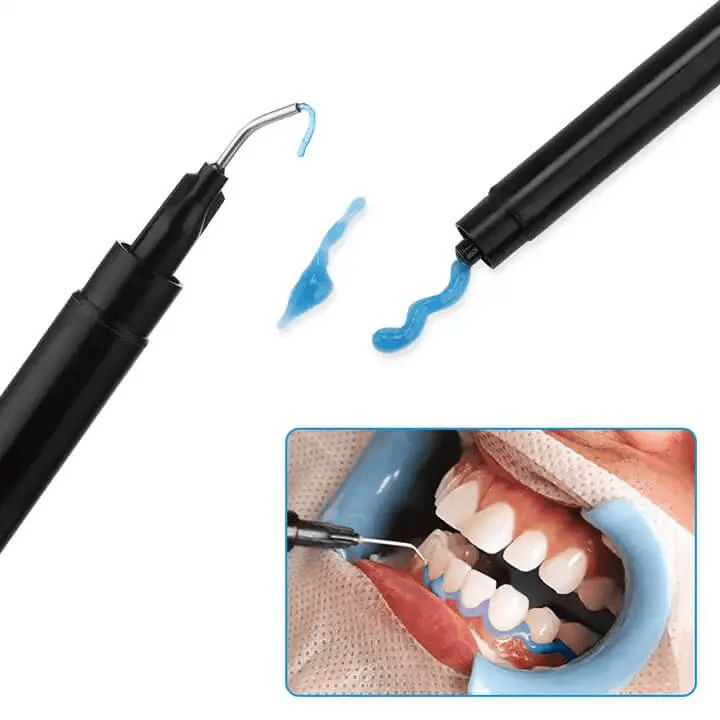Teeth Whitening Gum: A Convenient Solution for a Brighter Smile

A radiant smile can make a lasting impression, and many individuals are constantly seeking convenient ways to enhance the brightness of their teeth. Among the myriad options available, teeth whitening gum has gained popularity as a quick and easy solution. But how effective is it, and what should you know before adding it to your oral care routine? Let’s dive into the world of teeth whitening gum and explore its benefits, limitations, and best practices.
What Is Teeth Whitening Gum?
Teeth whitening gum is a type of chewing gum formulated with ingredients designed to help reduce surface stains on teeth. Unlike regular gum, it contains whitening agents such as:
-
Baking Soda: Known for its mild abrasive properties.
-
Hydrogen Peroxide: A common bleaching agent in dental products.
-
Xylitol: A natural sweetener that also fights cavities.
These gums are marketed as an on-the-go solution for maintaining a brighter smile without the need for extensive treatments.
How Does Teeth Whitening Gum Work?
Teeth whitening gum works primarily by removing surface stains caused by foods, beverages, and tobacco. Here’s how it functions:
-
Chewing Action: The gum’s texture gently scrubs the teeth, helping to loosen and remove debris.
-
Active Ingredients: Whitening agents like baking soda or peroxide provide additional cleaning and slight bleaching effects.
-
Saliva Production: Chewing gum increases saliva, which helps wash away food particles and neutralizes acids that can discolor teeth.
Benefits of Using Teeth Whitening Gum
-
Convenience: Ideal for people who are always on the go, teeth whitening gum can be used anywhere, anytime.
-
Cost-Effective: Compared to professional whitening treatments, it’s an affordable alternative.
-
Dual Action: It not only helps brighten teeth but also freshens breath and fights plaque buildup.
-
Non-Invasive: Unlike whitening strips or trays, there’s no need for special application or extra tools.
Limitations of Teeth Whitening Gum
While teeth whitening gum has its perks, it’s important to note its limitations:
-
Surface Stains Only: It cannot address deep stains or intrinsic discoloration.
-
Gradual Results: The whitening effect is subtle and requires consistent use over time.
-
Temporary Effects: The results may fade if you continue consuming stain-causing foods and beverages.
-
Not a Replacement: It should complement, not replace, a regular oral hygiene routine.
Who Can Benefit From Teeth Whitening Gum?
Teeth whitening gum is suitable for individuals who:
-
Want to maintain a bright smile between professional cleanings.
-
Are frequent coffee, tea, or wine drinkers.
-
Prefer a non-invasive approach to teeth whitening.
-
Are looking for an affordable and portable option.
Tips for Using Teeth Whitening Gum Effectively
To get the most out of teeth whitening gum, follow these tips:
-
Choose Quality Products: Look for gums from reputable brands that contain proven whitening agents.
-
Use Regularly: Consistency is key to achieving and maintaining results.
-
Limit Stain-Causing Foods: Reduce consumption of dark-colored drinks like coffee and wine.
-
Maintain Good Oral Hygiene: Combine gum use with regular brushing, flossing, and dental visits.
Alternatives to Teeth Whitening Gum
For those looking for more dramatic results, consider these options:
-
Whitening Toothpaste: Designed to remove surface stains with gentle abrasives.
-
Whitening Strips: Provide a more noticeable whitening effect.
-
Professional Whitening: Performed by a dentist for deep stain removal.
-
At-Home Kits: Combine convenience with effective results using whitening gels and trays.
Conclusion
Teeth whitening gum is a practical and affordable option for maintaining a brighter smile. While it may not replace professional whitening treatments, it can effectively reduce surface stains and freshen your breath. Incorporate it into a holistic oral care routine for the best results. A brighter, more confident smile is just a chew away!
- Art
- Causes
- Crafts
- Dance
- Drinks
- Film
- Fitness
- Food
- Juegos
- Gardening
- Health
- Home
- Literature
- Music
- Networking
- Other
- Party
- Religion
- Shopping
- Sports
- Theater
- Wellness


